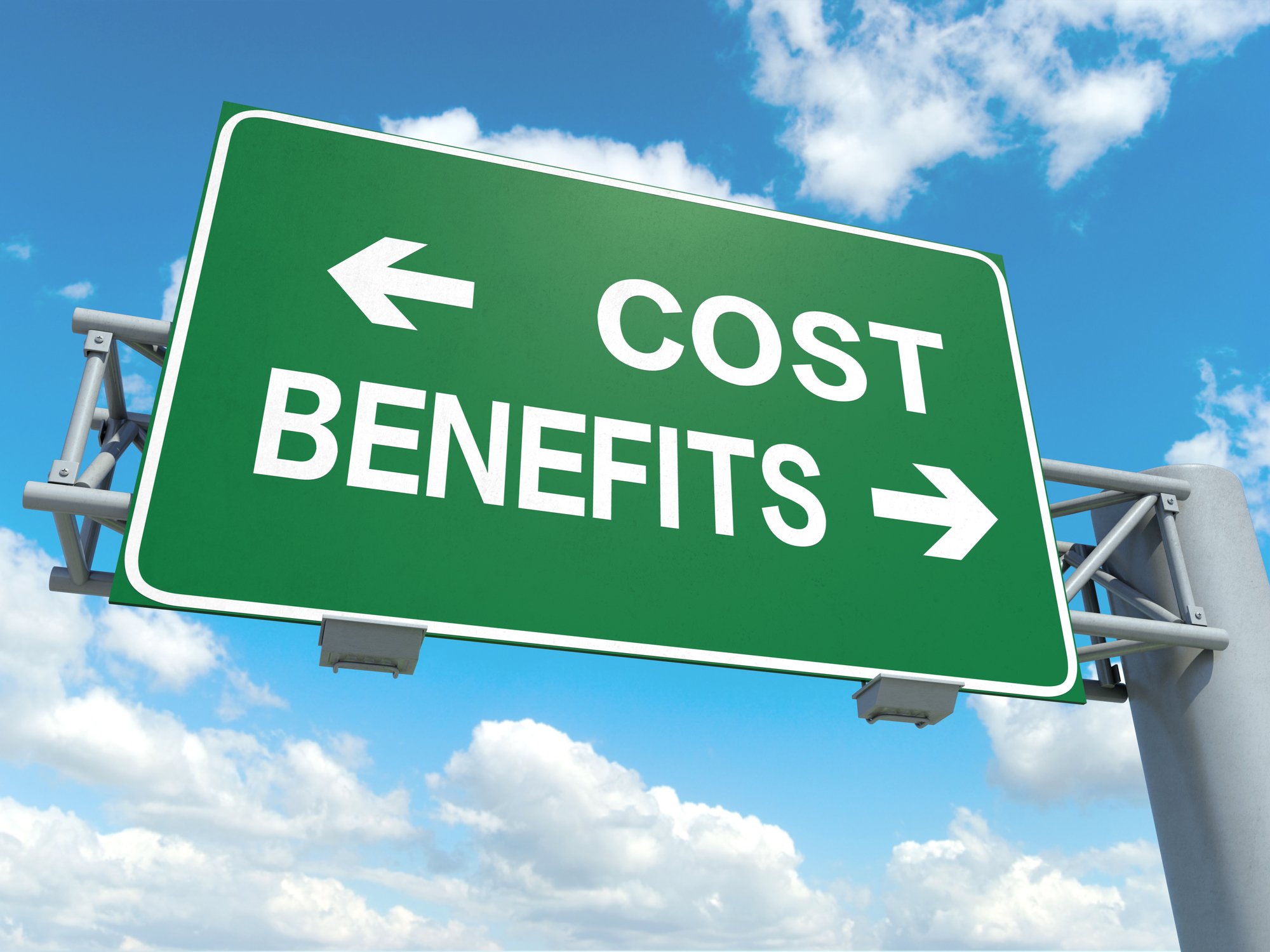
Image source: Getty Images.
Many of us may daydream about lazier days ahead, when we're retired and collecting Social Security checks. But to make the most of Social Security, we need to do more than daydream. It's rather important, for example, to have a plan for when it's best to start collecting your checks. Your expected (or "full") retirement age is likely 66 or 67, but you can start collecting as early as age 62. That can make sense for some, but here are some reasons why you might not want to start receiving benefits at 62. Weigh the costs and benefits.

Waiting makes your checks bigger. Image source: Getty Images.
Waiting will make your checks fatter
Selena Maranjian: One reason it's dumb to start receiving Social Security retirement benefits at age 62 -- the earliest age at which you can start -- is because you can make those checks much bigger by waiting. Each of us has, based on our birthday, a "full" retirement age. For those born in 1960or later, it's 67. For those born before, it might be 65 or 66. You'll receive your full benefits if you start collecting at your full retirement age. Retire earlier, and you'll receive smaller checks. Those with a full retirement age of 67 who start collecting at 62 will see their benefits shrink by 30%. If your full benefits would have been $1,000 per month, they'll be $700 instead.
It's true that there's a counterargument to this: While your checks will be smaller, there will be many more of them. So many, in fact, that if you live an average-length life, then it won't really matter when you start collecting. That's how the calculations are designed.
There's still a good case for not starting to collect at 62, though, if you can afford to wait. You may, after all, live a longer-than-average life. More and more people are reaching their 90s and even 100 and beyond. The longer you live, the more money overall you'll collect from Social Security. And those bigger checks can be welcome if you face, say, significant healthcare costs. Fidelity Investments releases an annual estimate of how much a 65-year-old couple will spend out of pocket in retirement on healthcare, and their latest number is $260,000!
You'll maximize your checks by waiting until age 70, but any number of years that you delay past age 62 will deliver more dollars to you each month.

Image source: Getty Images.
Claiming early can hurt your survivors
Brian Feroldi: There are many factors to consider when choosing a start date to claim Social Security benefits, but an important one to keep in mind relates to how survivor benefits are calculated.
When one spouse passes away, the surviving spouse is entitled to collect up to 100% of the deceased spouse's benefits, as long as they themselves wait until full retirement age to claim benefits. That's a nice feature of the Social Security program, and you might be surprised to learn that there are currently 5 million widows or widowers claiming benefits based on their deceased spouse's earnings record.
As Selena noted above, the sooner you claim your benefits, the lower your monthly check will be. Thus, if you claim at 62, then you may be locking your surviving spouse into a smaller monthly check for the rest of his or her life, too.
This is an especially important point to keep in mind if the higher-earning spouse is in poor health. After all, in this scenario, it's logical to want to claim benefits as quickly as possible to maximize the number of checks that they themselves will receive. However, before you move forward, you should also consider the health of the surviving spouse. If he or she outlives the deceased spouse by a decade or more, then the smaller surviving-spouse checks could make finances tight.

Image source: Getty Images.
You'll put yourself in trouble later in retirement
Jason Hall: Retiring as early as possible is great -- if you can truly afford it. Sadly, many early retirees make the mistake of ignoring the impact of retiring early on their retirement savings accounts. Not only will you start withdrawing from your retirement savings earlier if you retire at 62, but you'll also need larger distributions to make up for the smaller Social Security check you'll get when you start at 62.
Additionally, many retirees don't accurately gauge the impact of costs of care on retirement savings, especially later in life when most people need a lot more support than they do when they are younger. Factor in that many people are living longer -- well into their 80s -- and taking Social Security at 62 could be a boneheaded move. This is especially true considering that Medicare won't pay for non-medical care, such as help with tasks such as bathing, cleaning, or preparing meals, unless you also need medical care. Thus, many individuals or their family are left having to pay for or provide care.
So, before you start taking Social Security early, take a long, hard look at how much your retirement savings will be depleted by retiring early versus waiting a few more years and building it up. You may not get as many years in retirement, but delaying a few years to make sure you have a big enough nest egg for both your early and later years could vastly improve the quality of your later retirement years. It could also prevent you from becoming a burden on your family if you don't otherwise have the resources to pay for needed care later in life.





